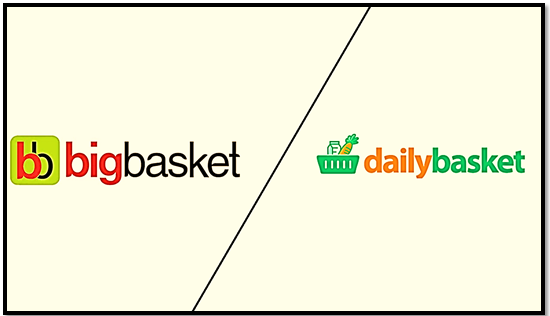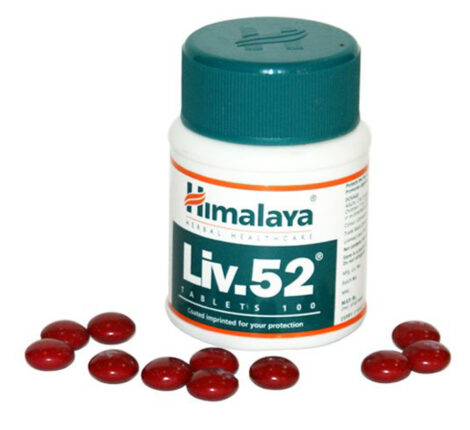What Is In That Basket- Infringement Or Bullying?
INTRODUCTION
Whenever we visit any website/blog related to Intellectual Property Rights (IPR), we always find numerous cases on trademark infringement and protection, which are being registered regularly. Something which was said to be an emerging area of law has now entered the mainstream, drawing a substantial amount of attention from brand owners, lawyers, courts, and policymakers. The immense importance held by trademarks in any sector of business is the root cause of this. Trademarks serve as a distinct identity for any brand amidst several other competitors in the same market. Through trademark, consumers can make their preference list, and the brands can reach out to a larger group of people. With the advent of the digital marketing era, the importance of a registered (hence, protected) trademark has been growing by leaps and bounds. It has now become necessary for brand owners to be careful about their innovative strategies, to make sure that they don’t infringe any other registered mark, and at the same time protect any secondary meaning/distinctive identity which they have carved by these strategies.
We recently witnessed a trademark battle between India’s largest online grocery marketplace BigBasket and a budding online grocery delivery startup Daily Basket. Here, BigBasket served a ‘cease and desist notice to the Coimbatore-based new entrant for trademark infringement and brand name violation over the use of the term ‘basket’, which happens to be common in the names of both the companies. In the notice, BigBasket stated that the use of ‘basket’ makes the name adopted by Daily Basket is confusingly/deceptively similar to BigBasket’s domain name, as both the companies offer similar products and services. Through the notice, the Daily Basket has been given 15 days to comply with the contentions raised and further even pay the legal notice cost. In response, Daily Basket has created a complete website by the name of https://bbisabully.com to state the reasons for not considering this as an infringement at all and termed this as an act of bully by the grocery giant. So, this case acts as a ground for a new debate, which is the aspect of infringement v. bullying.
SUMMARY OF CONTENTIONS AND REPLIES
To have a better understanding of the dispute, the following are some of the points put forth by both the companies from their end about the ‘cease and desist notice by BigBasket:
Contentions by BigBasket:
BigBasket claimed infringement of its trademark under its ‘cease and desist’ notice by citing the following points:
- The domain (dailybasket.com), mark and logo are deceptively similar, with enough potential to confuse the consumers.
- Daily basket will be offering identical products and services under the deceptive mark.
- The layout and get up of the website have been copied from bigbasket.com.
- BigBasket has done prior adoption of the brand name and mark, and therefore the use of the similar mark is detrimental to the distinctive character and reputation.
Response by Daily Basket:
Through the website named https://bbisabully.com/, Daily Basket gave a point-by-point response to the allegation made by BigBasket. Some of the points are:
- Except for the word ‘basket’, there is no other similarity between the two marks. The entire colour composition, fonts and design are substantially different, for consumers not to get confused.
- The overall interface of the website is entirely different from the one of BigBasket.
DISTINCTIVE MARKS
Section 2(1)(zb) of the Trade Marks Act, 1999 defines a ‘trade mark’ as a mark capable of being represented graphically and which is capable of distinguishing the goods or services of one person from those of others and may include shape of goods, their packaging and combination of colours. A lot has been discussed upon the word ‘distinguishing’, which has been the basis for allegation concerning trademark infringement in most of the suits. The distinctive identity (implied by the usage of ‘distinguishing’) of a mark can be both acquired inherently by registration or by using for a considerable time. However, the standards for proving distinction have been discussed in the court of law very often, and the same was laid down in the case of Abercrombie & Fitch Co. v. Hunting World, Inc.1, where the Court defined the following terminologies:
- Generic marks- Should not qualify for protection, owing to the mainstream use of words/marks.
- Descriptive marks- Such marks which somehow reflect the nature or qualities or specifics of a product/service shall qualify for protection, only in some instances considering the recognition and meaning acquired by the brand.
- Suggestive marks- These are said to be qualifying for protection, as they hint at an attribute of a product.
- Arbitrary marks (fanciful)- These marks are entitled to more vital protection, as they are some common words used in a completely different context.
- Invented marks- These qualify for the most substantial protection since the brands uniquely make them represent themselves.
Now, it is pertinent to note that the term BigBasket is made up of two components, and together they can be used to recognize the brand. And the claim regarding protection for the secondary meaning has to be related to the mark as a whole and not just with one of the components. The Court held the in the case of Sky Enterprise Private Ltd. v. Abaad Masala and Co.2, that the entire mark can be given protection and not the individual portions and combination of words used in the same. We can compare this unreasonable situation with the brand ‘Good day biscuits’ alleging infringement of trademark on a company named ‘Good Luck’ for using the word ‘Good’. By a detailed trademark search with names including ‘Big Basket’, ‘Daily Basket’, and ‘Basket’ under trademark class 30 (includes mainly foodstuffs of plant origin prepared for consumption or conservation as well), the following points can be noted:
- Seven registered trademarks have ‘Big Basket’ in them. All of these trademarks are owned by the company BigBasket itself, with variations including colour, capitalization and .com extension.
- As far as the word ‘Basket’ is concerned, 163 marks (including accepted, objected, abandoned, etcetera) contain this word. Some of the registered ones include Fresh Basket, Angels Basket and Nutri Basket. These companies are engaged in similar business, if not the same as BigBasket.
It can be safely concluded that the word ‘basket’ cannot be said as monopolized by BigBasket, as it is a mere generic word. So, using the word ‘basket’ shall not be considered a strong base for establishing infringement. However, the confusion aspect will still be an essential point to discuss, considering the contention raised by BigBasket and the protection granted even if other similarly named companies are existent.
THE CONFUSION
Various brands file the trademark suits to prevent a scenario where the consumers might get confused between two brands, owing to the similarity in their marks. Section 29(2)(c) of the Trade Marks Act deals with the confusion aspect amidst the consumers, where the infringement is considered if its identity with the registered trade mark and the identity of the goods or services covered by such registered trade mark, is likely to cause confusion on the part of the public, or which is likely to have an association with the registered trade mark.
An extension to the above contention of getting confused between the brands happens to be an instance where the consumers end up assuming a relation between the two brands, therefore afflicting harm upon the uniqueness of any particular brand. Such marks also termed deceptively similar marks. In the case at hand, the same has been claimed by BigBasket that the common element would lead to a similar instance. However, it fails to address two crucial points. The first one being the existence of a substantial difference between the marks of BigBasket and Daily Basket.
In the case of Cadila Health Care Ltd. v. Cadila Pharmaceuticals Ltd.3, the court discussed the concept, and laid down specific points to be taken into account while deciding upon the deceptively similar nature of a mark. The relevant ones are a) the nature of the marks i.e., whether the marks are word marks or label marks or composite marks i.e., both words and label works; b) the degree of [resemblance] between the marks, phonetically similar and hence similar in idea. Here, the visual representation combined with other different elements in the name makes it highly unlikely for a consumer to get confused between the two brands, ruling out the mark’s scope being deceptively similar. Concerning the point on the composite mark, the same has already been discussed in the previous section and has been reiterated in the case of 1A Pharma GMBH v. The Joint Registrar Trade Marks by the IPAB4. In this case, the court held that the comparison of marks should take place by taking into account the entire mark, with all the components.
TRADEMARK BULLYING
Trademark bullying, as defined by the USPTO, is when ‘trade mark owner that uses its trade mark rights to harass and intimidate another business beyond what the law might be reasonably interpreted to allow’. For example, whenever a more significant entity opposes a trademark of a relatively more minor entity, knowing that the latter is incapable of entering into a long process concerning both commercial reputation and financial resources, leaving them the only option to comply with the contentions of the notice.
From the perspective of Indian laws, Section 142 of Trade Marks Act deal with the groundless threats of legal proceedings, where it provides remedies (including injunction and restraint on the party to carry out the threats) against notices, circulars or otherwise threatens a person with an action or proceeding for infringement of a trade mark which is registered or alleged by the first-mentioned person to be registered, or with some other like proceeding. Daily Basket could have taken the support provided under this provision, but it created a website to counter the claims out forth by BigBasket. In response, BigBasket stated that it now intends to solve the matter amicably. The notice sent to Daily Basket was not a form of bully but merely a trademark protection strategy of the owners.
Also read: Risk it to get the biscuit: Britannia Industries Ltd vs. ITC Limited
CONCLUSION
Upon discussing the entire dispute in light of the relevant legal provisions and judicial precedents, we can safely state that the trademark protection strategy by BigBasket has been overly aggressive and an unreasonable extension of the laws. Its intent behind monopolizing the word ‘basket’ is not permissible under the provisions, owing to the difference between a specific and generic word. Even if BigBasket proves the secondary meaning acquired by the word ‘basket’ for the brand, it will not be a smooth road due to the existence of ‘Godrej’s nature basket’ for a long time. It can be challenging for the company to prove the exclusive use of the generic word ‘basket’ as the theory of prior use and commercial strength has to be established as Godrej is a much more recognized brand than BigBasket.
Also, this is not the first time when BigBasket has adopted an aggressive trademark strategy. It has often opposed marks with the word ‘basket’ in names such as ‘Smart Basket’ and ‘Wow Basket’. Therefore, another decision in its favor would necessarily imply its monopoly over the generic word. These all factors make this case note-worthy, as this will be a significant judgement on the contention of monopolizing fractions of a trademark.
Authored by: Unnat Akhouri, NALSAR University of Law
Disclaimer: This article is intended to provide general guidance to the subject matter. It does not contain legal advice. For any specific advice/corrections, write to [email protected]
© ZEST IP
- Abercrombie & Fitch Co. v. Hunting World, Inc., 537 F.2d 4 (2nd Cir. 1976)
- Sky Enterprise Private Ltd. v. Abaad Masala and Co., COMMERCIAL I. P. SUIT (L) NO. 1124 OF 2019
- Cadila Health Care Ltd. v. Cadila Pharmaceuticals Ltd., (2001) 5 SCC 73
- 1A Pharma GMBH v. The Joint Registrar Trade Marks by the IPAB, Miscellaneous Petition No. 183 Of 2010 In Oa/38/2010/Tm/Kol &Amp




